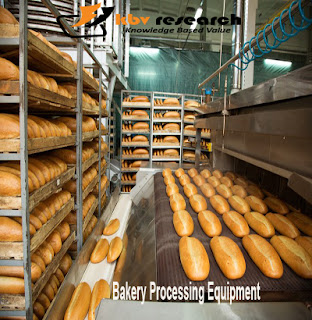How Advanced Packaging Has Turned The Tables For The Semiconductor Industry
Advanced packaging has reached its most productive period, fueled by the need for better integration, the end of Moore's law and, beyond that, megatrends, transport, 5G, user, memory & computing, artificial intelligence (AI) and high-performance computing (HPC).
The term packaging simply means wrapping or protecting products. In the media world, it usually refers to the flow and sequence of commercial production or news from beginning to end. Electronics packaging is yet another concept, which involves the design and manufacture of enclosures for electronic devices ranging from individual semiconductor devices to complete systems. Advanced packaging is a significant discipline in the industry in order to develop long-lasting and long-lasting features and functions.
 |
| Advanced Packaging |
The term packaging simply means wrapping or protecting products. In the media world, it usually refers to the flow and sequence of commercial production or news from beginning to end. Electronics packaging is yet another concept, which involves the design and manufacture of enclosures for electronic devices ranging from individual semiconductor devices to complete systems. Advanced packaging is a significant discipline in the industry in order to develop long-lasting and long-lasting features and functions.
What is advanced packaging?
Advanced packaging has been developed as a way of enhancing the efficiency of the product and at the same time raising packages. Improvements will continue along this track. To clarify where we are now, let's go back and see what advanced packaging is. The first cell phones were only less than 23 millimeters thick.The sleek and fashionable 10 mm phones were only possible due to the wafer level packaging (WLP) and the PoP. Traditional packaging encapsulated each individual chip, requiring more weight in return for even greater instability. WLP overcame this constraint by connecting the protective layers to the wafer before splitting it into separate pieces. This way, the chips could be checked until they were diced, and the manufacturing process went more smoothly.
Almost all appliances and systems in various fields, including home appliances, media, industrial, medical and transport systems, contain semiconductor chips. The Semiconductor packaging method is one of the most emerging and unexpectedly approved sectors. This global industry has been evolving at a higher pace with the emergence of innovative systems and a increasing inclination towards end-customers. Advanced packaging materials are a range of electronic technologies used to connect the IC chip to the packaging substrate.
Importance of advanced packaging
Computing has developed greatly over the years; it has motivated the semiconductor industry to develop innovative technologies and meet the increasing needs and complexities of many generations of electronics. The development of smart devices and new technologies will continue to drive the need for higher performance, miniaturization and increased demand for enhanced functionality. Material engineering and integration technologies will continue to play an significant role in the growth and production of highly integrated products and systems.Advanced packaging plays an significant role in separating chips from the environment , ensuring that the chip mount is electrically attached to printed wiring boards. Semiconductor packaging and assembly comprises a range of technologies such as substrate, surface treatment, bonding, electromagnetic characteristics, 3D chip stacking, thermal dissipation, component integration and circuit design. Semiconductor packaging plays a vital role in manufacturing, as it is one of the closest steps to end customers. Nevertheless, the difficulty of the production conditions makes operating a semiconductor packaging facility a difficult task, and dynamic factory simulation has been seen as an effective purpose of accomplishing this objective.
Advanced packaging trends:
Need for advanced packaging for miniaturized devices
As technology advances increase, manufacturers focus on providing compact electronic devices in a variety of vertical industries such as consumer electronics, healthcare, automotive and semiconductor IC manufacturing. These manufacturers reduce the size of integrated circuits to ensure fine patterning of wafers and chips.In addition, the medical device industry is seeing an increase in demand for advanced nano-sized robotic surgery equipment and innovations in wearable and personalized medical devices. As a result, trends in compact electronic devices have generated a need for designers to expand conventional packaging approaches and introduce modern packaging.
Semiconductor components in vehicles
The need for semiconductors in this sector is guided by electrification of vehicles coupled with rising automation demand. For many purposes Semiconductor ICs for cars, such as airbag control, GPS, antilock braking systems, displays, infotainment systems, power doors and windows, automated driving and collision detection technology are used.In addition, demand for innovative packaging technologies in the automotive industry would be driven by the need for compact semiconductor devices with the right form factor. Driven by the increasing annual production number of cars, the automotive market is expected to grow, creating substantial demand for semiconductor devices. In the forecast period, this will trigger an indirect demand for advanced packaging solutions.
Improved system performances and optimization of advanced packaging
Semiconductor packaging industry is offering innovative IC packages to build next generation chip designs. Traditionally, the integrated circuit industry has used conventional chip scaling and creative designs for modern applications. In addition, there are multi-chip packages in every phone, data center, consumer electronics and network that drive the growth of advanced packaging as it promotes system optimization process.Prepaid packaging promotes the use of AI, machine learning, and profound learning, since it enables the combination of various processing elements and memories using high-speed connections. For different industry verticals, like automotive, health, aerospace & defense and the industrial industry, the enhanced operational capabilities and accurate processing now take on advanced packaging are lucrative.
The bottom line
The latest trend in the advanced packaging market in microelectronics is the emergence of fan out wafer level packaging (FOWLP). Through the use of FOWLP for a number of technical advances in heterogeneous integration, including multiple dye packing, passive component integration through product and redistribution layers, etc. It is therefore ideal for packaging the very miniature energy harvester system consisting of a piezo harvester, an electricity control unit and an energy storage supercapacitor.Free Valuable Insights: Global Advanced Packaging Market to reach a market size of USD 55.8 billion by 2026
Advanced packaging solutions have exploded with creativity and sophistication. In addition, wafer-level packaging has undergone significant advances in materials, processes and facilities, allowing WLP to become one of the fastest-growing chip packaging technologies. Bumping, redistribution layers, fan out, through-silicon vias, and other technologies have led to the small-form factor chips with the strong, high-speed functionality that consumers demand from mobile electronics. The next generation of semiconductor devices is likely to be enabled by leading-edge advanced packaging technologies.



Comments
Post a Comment